Sulfur, often underestimated, boasts incredible potential in skincare despite its reputation for a strong odor and industrial use in fertilizers. From ancient times to modern labs, skincare experts have revered sulfur for its ability to promote clearer, healthier skin. This natural element, found in rocks, minerals, and plants, has a long history dating back to ancient civilizations like Egypt and Greece. Despite its historical and medical significance in DNA repair and cellular protection, sulfur's skincare benefits remain largely untapped by the general public. In this series, we uncover sulfur's skincare potential, exploring its effectiveness in addressing acne, inflammation, oil control, and pore refinement. By understanding sulfur's secrets, we aim to empower individuals to make informed decisions about their skincare routines and unlock the transformative benefits of this age-old remedy.
The Elemental Solution: Sulfur's Role in Skin Health

Sulfur, often overlooked in skincare, plays a crucial role in maintaining optimal skin health. Despite its unconventional reputation, this natural element offers various benefits for skin concerns. From combating acne to promoting overall skin rejuvenation, sulfur's versatility makes it a valuable asset in any skincare routine.
-
Addressing Acne and Inflammation: One of sulfur's most renowned benefits is its ability to combat acne and reduce inflammation. Sulfur possesses antibacterial properties that help to eliminate acne-causing bacteria while also soothing irritated skin. By targeting the root causes of acne, sulfur can effectively reduce breakouts and promote clearer, smoother skin.
-
Regulating Oil Production: Excess oil production is a common concern for many individuals, leading to clogged pores and acne flare-ups. Sulfur helps to regulate oil production by absorbing excess sebum and preventing pore blockages. By keeping oil levels in check, sulfur aids in maintaining a balanced complexion and reducing the likelihood of breakouts.
-
Purifying and Detoxifying the Skin: Sulfur's purifying properties make it an excellent ingredient for detoxifying the skin. It works by drawing out impurities and toxins from the pores, resulting in a clearer, more refined complexion. Additionally, sulfur helps to exfoliate dead skin cells, promoting cell turnover and revealing fresher, healthier-looking skin.
-
Promoting Skin Rejuvenation: Beyond its acne-fighting abilities, sulfur also plays a role in promoting overall skin rejuvenation. It stimulates collagen production, which helps to improve skin texture and elasticity, reducing the appearance of fine lines and wrinkles. Additionally, sulfur aids in repairing damaged skin cells, resulting in a smoother, more youthful complexion.
-
Suitability for Various Skin Types: One of the greatest advantages of sulfur is its suitability for various skin types. Whether you have oily, acne-prone skin or dry, sensitive skin, sulfur can be incorporated into your skincare routine with minimal risk of irritation. Its gentle yet effective nature makes it a versatile ingredient for addressing a wide range of skin concerns.
In the next section, we will delve deeper into the specific benefits of sulfur for different skin types and conditions. Stay tuned to learn how sulfur can help you achieve clearer, healthier skin, regardless of your skin type or concerns.
From Volcanoes to Vanity: Sulfur's Historical Use in Skin Care

Understanding the wonders of sulfur is key to unlocking the secrets of skincare. In "The Elemental Solution: Sulfur's Role in Skin Health," we delve into the profound impact of sulfur on our skin. From its origins in volcanic eruptions to its crucial role in maintaining our skin's balance, sulfur's journey is both intriguing and vital.
Throughout history, civilizations worldwide have revered sulfur for its remarkable healing properties. It has been cherished for its ability to cleanse, purify, and restore our skin's equilibrium, whether through ancient thermal baths or traditional remedies. Today, sulfur remains a staple in modern skincare routines, thanks to its anti-inflammatory, antibacterial, and exfoliating qualities.
Sulfur is a powerful weapon against common skin issues like acne and blemishes. Its capacity to regulate oil production, refine pores, and encourage skin cell turnover makes it an invaluable ally in achieving clearer and healthier skin. Through scientific research and personal experiences, we uncover the extensive therapeutic benefits of sulfur, affirming its potential to promote skin health and vitality.
Sulfur and Acne: A Match Made in Skin Heaven
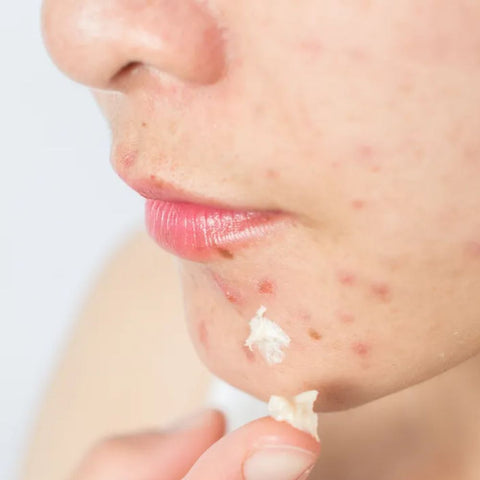
When it comes to battling acne, sulfur emerges as a formidable ally in the skincare arsenal. This natural element possesses unique properties that make it exceptionally effective in addressing various aspects of acne, from reducing inflammation to controlling excess oil production.
-
Combatting Bacteria: Acne often arises from the proliferation of bacteria on the skin's surface, leading to inflammation and breakouts. Sulfur boasts potent antibacterial properties, making it adept at targeting acne-causing bacteria and preventing their growth. By reducing bacterial activity, sulfur helps to minimize the occurrence of new breakouts and promote clearer skin.
-
Reducing Inflammation: Inflammation is a hallmark feature of acne, contributing to redness, swelling, and discomfort. Sulfur's anti-inflammatory properties work to soothe irritated skin, reducing redness and swelling associated with acne lesions. By calming inflammation, sulfur helps to alleviate discomfort and promote faster healing of existing breakouts.
-
Regulating Oil Production: Excess oil production is a common factor in acne development, leading to clogged pores and the formation of blackheads and whiteheads. Sulfur helps to regulate oil production by absorbing excess sebum from the skin's surface. By keeping oil levels in check, sulfur prevents pore blockages and reduces the likelihood of new breakouts.
-
Promoting Exfoliation: Dead skin cells can accumulate on the skin's surface, clogging pores and exacerbating acne. Sulfur possesses mild exfoliating properties, helping to slough off dead skin cells and unclog pores. By promoting exfoliation, sulfur prevents the buildup of debris and encourages the regeneration of healthy skin cells.
-
Suitability for Sensitive Skin: One of the advantages of sulfur is its gentle nature, making it suitable for sensitive skin types prone to irritation. Unlike some harsh acne treatments, sulfur is less likely to cause dryness or peeling, making it a gentler option for those with delicate skin.
Beyond Blemishes: Sulfur's Versatile Skin Benefits
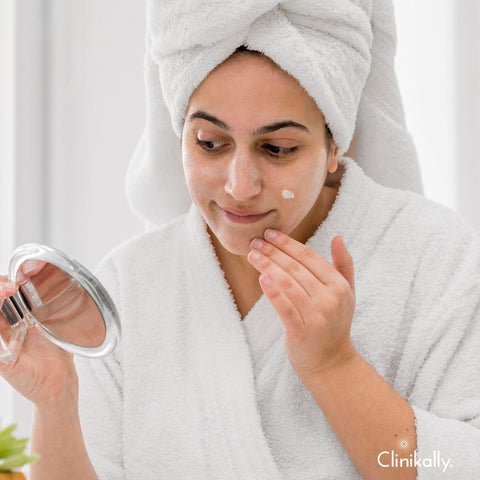
While sulfur is renowned for its efficacy in treating blemishes and acne, its benefits extend far beyond addressing breakouts. This natural element offers a myriad of skincare benefits that contribute to overall skin health and vitality.
-
Oil Control and Pore Refinement: Excess oil production and enlarged pores are common concerns for many individuals. Sulfur helps to regulate oil production by absorbing excess sebum from the skin's surface, resulting in a smoother, more refined complexion. Additionally, sulfur's astringent properties help to tighten pores, reducing their appearance and preventing them from becoming clogged with debris.
-
Exfoliation and Skin Renewal: Dead skin cells can accumulate on the skin's surface, leading to dullness and congestion. Sulfur possesses mild exfoliating properties, helping to slough off dead skin cells and promote cell turnover. By encouraging the removal of dead skin cells, sulfur promotes a brighter, more radiant complexion and helps to prevent the formation of blackheads and whiteheads.
-
Calming and Soothing: Sulfur's anti-inflammatory properties make it an excellent choice for soothing irritated and inflamed skin. Whether caused by acne, rosacea, or environmental aggressors, sulfur helps to reduce redness and inflammation, providing relief to sensitive or compromised skin. Its calming effects make it a valuable ingredient for individuals with reactive or acne-prone skin.
-
Antioxidant Protection: As an antioxidant, sulfur helps to neutralize free radicals and protect the skin from oxidative stress. Free radicals are unstable molecules that can damage skin cells and accelerate the aging process. By scavenging free radicals, sulfur helps to prevent premature aging and maintain the skin's youthful appearance.
-
Antibacterial and Antifungal Properties: In addition to its acne-fighting capabilities, sulfur exhibits broad-spectrum antibacterial and antifungal properties. This makes it effective in preventing and treating various skin infections, including fungal acne, folliculitis, and yeast overgrowth. Sulfur's antimicrobial properties help to keep the skin clean, clear, and free from harmful pathogens.
Integrating Sulfur into Your Skin Care Regime
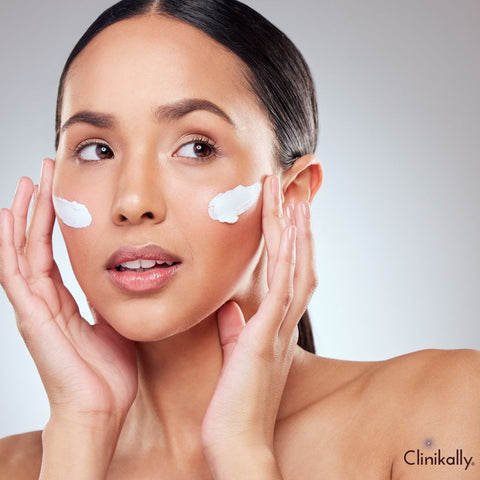
Incorporating sulfur into your daily skincare routine can be beneficial for addressing various skin concerns and maintaining overall skin health. Here's a guide on how to seamlessly integrate sulfur into your skincare regime:
-
Understand Your Skin's Needs: Before adding sulfur-based products to your regimen, assess your skin type and specific concerns. Sulfur is commonly used to target acne, excess oil production, and inflammation, but it can also benefit other skin conditions like rosacea and eczema.
-
Choose the Right Products: Sulfur is available in various skincare formulations, including cleansers, masks, spot treatments, and serums. Select products that cater to your skin's needs and preferences. Opt for gentle formulations if you have sensitive skin or potent treatments for more stubborn concerns.
-
Start Slowly: Introduce sulfur-based products gradually into your routine to allow your skin to adjust. Begin with one product at a time and use it every other day or a few times a week initially. Monitor how your skin responds and increase frequency as needed.
-
Cleanse with Sulfur: Incorporate a sulfur-based cleanser into your daily cleansing routine. Use it morning and night to help control oil production, unclog pores, and prevent breakouts. Gently massage the cleanser onto damp skin, then rinse thoroughly with lukewarm water.
-
Spot Treat Troublemakers: For targeted treatment of blemishes or acne spots, use a sulfur spot treatment. Apply a small amount directly onto the affected areas after cleansing and allow it to dry before applying other products. Repeat this step morning and night or as directed.
-
Mask It Up: Treat yourself to a sulfur-based mask once or twice a week to deep clean pores and clarify the skin. Apply a thin layer of the mask to clean, dry skin and leave it on for the recommended time. Rinse off with warm water and follow up with moisturizer to replenish hydration.
-
Balance with Moisture: After using sulfur-based products, ensure to moisturize your skin adequately to maintain balance. Choose a lightweight, non-comedogenic moisturizer that won't clog pores or exacerbate acne. Apply it generously to hydrate and soothe your skin.
-
Sun Protection: Some sulfur-based products may increase photosensitivity, so it's crucial to apply sunscreen daily. Opt for a broad-spectrum sunscreen with SPF 30 or higher to protect your skin from harmful UV rays and prevent sun damage.
Choosing the Right Sulfur Product for Your Skin Type
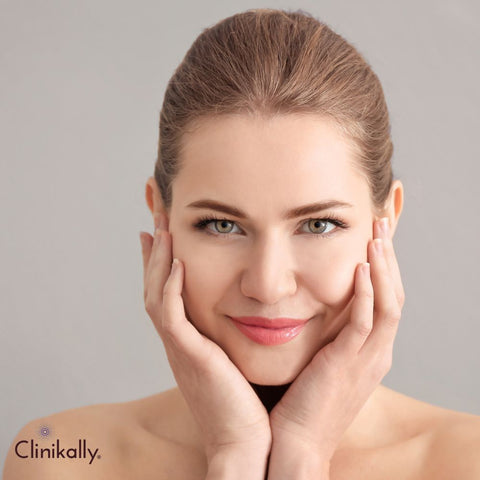
Selecting the appropriate sulfur-based skincare product is crucial for addressing your specific skin concerns while catering to your skin type. Here's a guide to help you choose the right sulfur product for your individual needs:
-
- Consider Your Skin Type:
- Oily or Acne-Prone Skin: If you have oily or acne-prone skin, opt for sulfur products specifically formulated to target excess oil production and breakouts. Look for oil-free cleansers, masks, and spot treatments that contain sulfur as a key ingredient.
- Dry or Sensitive Skin: For dry or sensitive skin types, choose sulfur products that are gentle and hydrating. Look for formulations that contain soothing ingredients like aloe vera or hyaluronic acid to prevent potential irritation or dryness.
- Formulation Preferences:
- Cleansers: Sulfur cleansers are ideal for incorporating sulfur into your daily skincare routine. They help to cleanse the skin, remove impurities, and control oil production without stripping away essential moisture.
- Spot Treatments: Targeted spot treatments containing sulfur are effective for treating individual blemishes and breakouts. These treatments deliver concentrated sulfur to specific areas, helping to reduce inflammation and promote healing.
- Masks: Sulfur masks provide a deeper treatment for congested or acne-prone skin. They work to absorb excess oil, unclog pores, and reduce the appearance of blemishes. Consider using a sulfur mask once or twice a week for best results.
- Check Ingredient Lists:
- Look for sulfur products that contain additional beneficial ingredients tailored to your skin concerns. For example, salicylic acid can enhance the exfoliating and pore-clearing effects of sulfur for acne-prone skin, while niacinamide can provide soothing and anti-inflammatory benefits.
The Ideal Sulfur Routine for Maximum Benefits

Developing the perfect sulfur regimen is key to reaping the full rewards from the powerful skincare ingredient toward clearer and healthier skin. Whether you suffer from acne, have oily skin, or deal with other specific needs in regards to your skin care, a well-rounded sulfur regimen will be able to help. The right regimen will make overall skin health achievable.
Start your sulfur regimen by using a sulfur-based cleanser in the morning and at night, to wipe out impurities, excess oils, and makeup, while targeting the treatment for problem areas. Look for a gentle formula that won't strip the skin of its natural moisture and is suitable for daily use.
To cleanse, use the Sulfur Mask one to two times a week to penetrate pores, control oil, and maintain skin clarity. Apply the mask to clean, dry skin and leave on for the recommended time. Rinse it off with plenty of warm water. Removes the contents of the pores and, at the same time, reduces the redness that prevents eruptions, without drying or irritating the skin.
A sulfur spot treatment might solve the problem for those few blemishes that have taken up residence or in cases of acne flare-up. Apply directly onto the affected whenever is required, making sure that the treatment would aid in the reduction of inflammation, killing bacteria, and allow your skin to heal quickly. Be sure to follow the instructions carefully and avoid overusing the product to prevent dryness or irritation.
Finish off your sulfur regimen with a light, non-comedogenic moisturizer that helps keep your skin hydrated and balanced. Look for a formula that won't clog pores or further irritate acne, and apply it after cleansing and treating your skin with sulfur products in the morning and night.
Sulfur Sensitivity: Tips for a Gentle Introduction
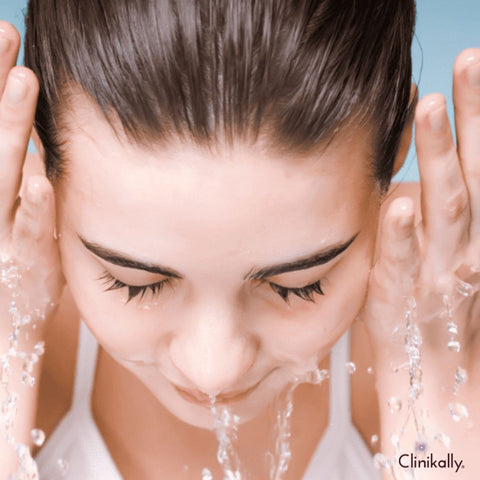
While sulfur can offer numerous benefits for the skin, it's crucial to use it cautiously, especially if you have sensitive or reactive skin. Here's how to gently introduce sulfur into your skincare routine to avoid irritation and maximize its benefits:
-
Patch Test: Always perform a patch test on a small, inconspicuous area of your skin, like the inside of your wrist or elbow, to check for any sensitivity or allergic reactions to sulfur.
-
Start Slow: Begin with products that have lower concentrations of sulfur and gradually increase usage as your skin adjusts, allowing it to acclimate and reducing the chance of irritation.
-
Monitor Your Skin: Keep an eye on how your skin reacts to sulfur products. If you experience redness, irritation, or dryness, consider reducing the frequency of use or switching to a product with a milder formulation.
-
Use as Directed: Follow the application instructions carefully. Avoid overusing sulfur products, as this could lead to skin dryness and irritation.
-
Pair with Soothing Ingredients: Combine sulfur treatments with soothing components like aloe vera, chamomile, or cucumber extract to help calm the skin and reduce potential sensitivity.
Real Results: Understanding Sulfur's Impact on Skin

Sulfur is a versatile skincare solution addressing various concerns like acne, oiliness, and congested pores. Its primary advantage lies in combating acne by targeting its root causes. Sulfur's antibacterial properties effectively kill surface bacteria, preventing new breakouts and accelerating the healing of existing ones. Additionally, its anti-inflammatory qualities help soothe inflamed and irritated skin, reducing redness and swelling.
Beyond treating acne, sulfur aids in managing oily and congested skin by regulating sebum production and ensuring a balanced, mattified complexion. Its exfoliating action helps unclog pores and remove dead skin cells, thereby preventing debris accumulation and further skin problems. Sulfur also exhibits antioxidant activity, protecting against environmental damage and oxidative stress to fend off premature aging and maintain a youthful, radiant appearance.
Moreover, sulfur stimulates collagen production, enhancing skin elasticity and firmness while diminishing fine lines and wrinkles. Overall, the effects of sulfur on the skin are comprehensive, making it an integral part of skincare routines for improved and clearer skin health with regular use.
Understanding Sulfur Side Effects

Sulfur, while beneficial for many skin concerns, may also present some potential side effects to be aware of. It's important to understand these potential drawbacks before incorporating sulfur into your skincare routine to ensure a safe and effective experience.
-
Dryness and Irritation: Sulfur can sometimes cause dryness and irritation, particularly in individuals with sensitive skin. This may manifest as redness, itching, or peeling, especially when using high concentrations of sulfur or products containing other harsh ingredients.
-
Sensitivity to Sunlight: Sulfur may increase your skin's sensitivity to sunlight, leading to a higher risk of sunburn or sun damage. It's essential to wear sunscreen daily and limit sun exposure while using sulfur-based products to mitigate this risk.
-
Unpleasant Odor: Sulfur's characteristic odor, often described as resembling rotten eggs, may be off-putting to some individuals. While many modern skincare formulations aim to mask this scent, it may still be noticeable in some products.
-
Allergic Reactions: Although rare, some people may experience allergic reactions to sulfur, resulting in hives, swelling, or difficulty breathing. If you have a known allergy to sulfur or sulfonamide medications, it's crucial to avoid sulfur-based skincare products altogether.
-
Staining Fabrics: Sulfur-containing products, particularly those with higher concentrations, may have a yellowish color that can stain clothing or bedding. Take care when applying sulfur-based treatments to avoid contact with textiles to prevent discoloration.
The Scientific Perspective: What Research Says About Sulfur
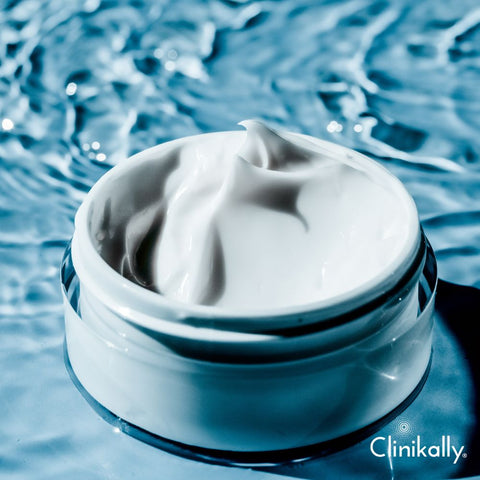
Scientific research solidifies sulfur's role in skincare, emphasizing its antibacterial properties effective against acne-causing bacteria like Propionibacterium acnes. Studies also highlight sulfur's anti-inflammatory capabilities, which alleviate redness, swelling, and irritation. Furthermore, sulfur's regulatory effect on sebum production and its exfoliating properties, which help unclog pores and remove dead skin cells, position it as a versatile treatment for acne and oily skin. This body of evidence supports sulfur's status as a safe and effective skincare ingredient for a broad spectrum of skin concerns.
When Sulfur Meets Skin: The Biological Process Explained
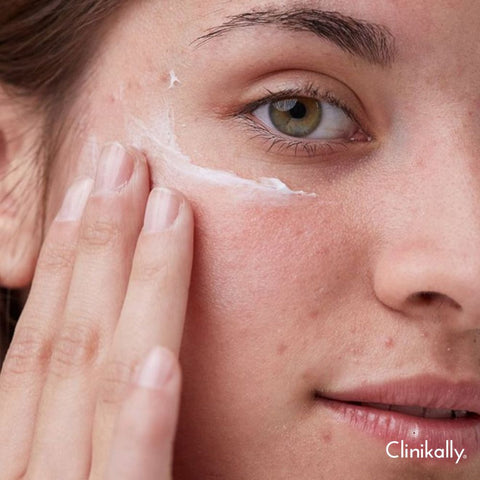
Delving into the biological interaction between sulfur and the skin reveals how sulfur delivers its benefits. Applied topically, sulfur penetrates the skin, interacting with natural oils and proteins. Its antibacterial action combats surface bacteria, preventing new acne while treating existing blemishes. Sulfur's influence extends to regulating sebum production and promoting exfoliation, thus preventing pore clogging and promoting skin clarity. Additionally, its anti-inflammatory properties offer solace to those with conditions like acne and rosacea, showcasing sulfur's comprehensive skincare advantages for clearer, healthier, and more radiant skin.
Sulfur in the Spotlight: Your New Go-To for Flawless Skin

Sulfur has risen as a skincare staple, recognized for its multi-faceted role in providing clearer, healthier skin. It addresses a variety of concerns, from acne and oiliness to pore refinement and overall skin clarity, making it a versatile and effective choice for those seeking to improve their skin. With its ability to regulate sebum production, eliminate acne-causing bacteria, and promote cell turnover, sulfur stands out for its capacity to unclog pores, reduce inflammation, and enhance skin health.
Incorporating sulfur into your skincare regimen involves starting slowly, choosing products tailored to your skin type and concerns, and adhering to usage instructions to avoid irritation. By doing so, you can tap into sulfur's potent antibacterial, anti-inflammatory, and exfoliating properties, transforming your skincare routine and enjoying the lasting benefits of clearer, healthier, and more radiant skin.
































